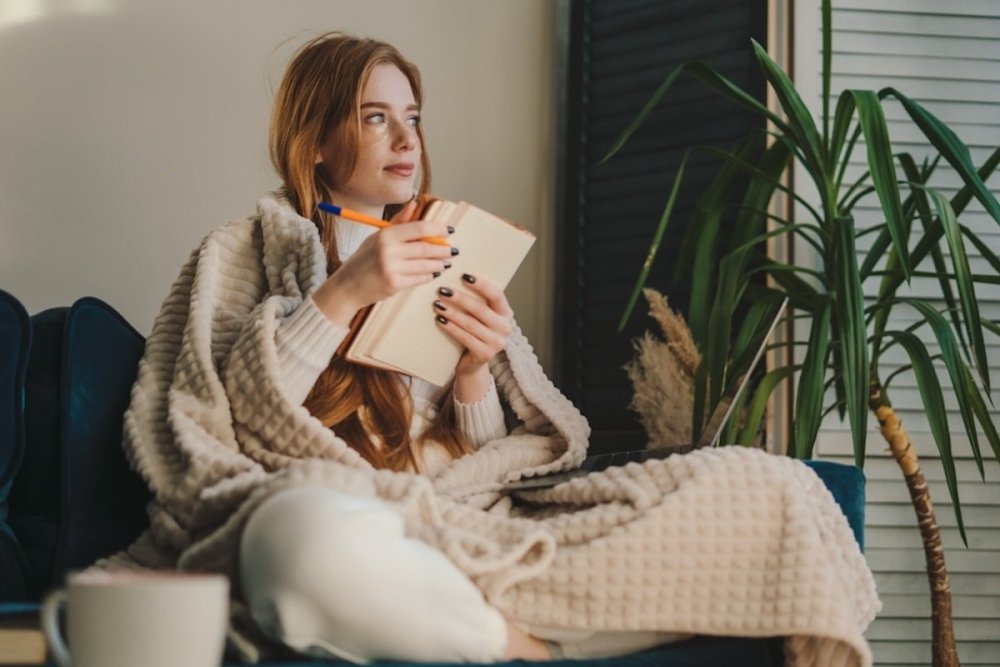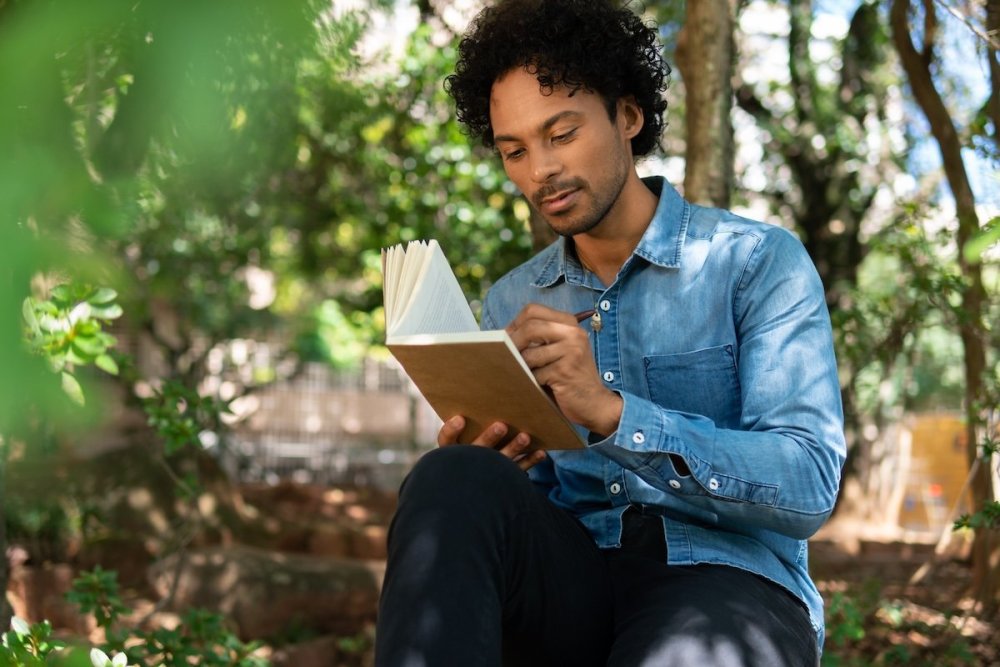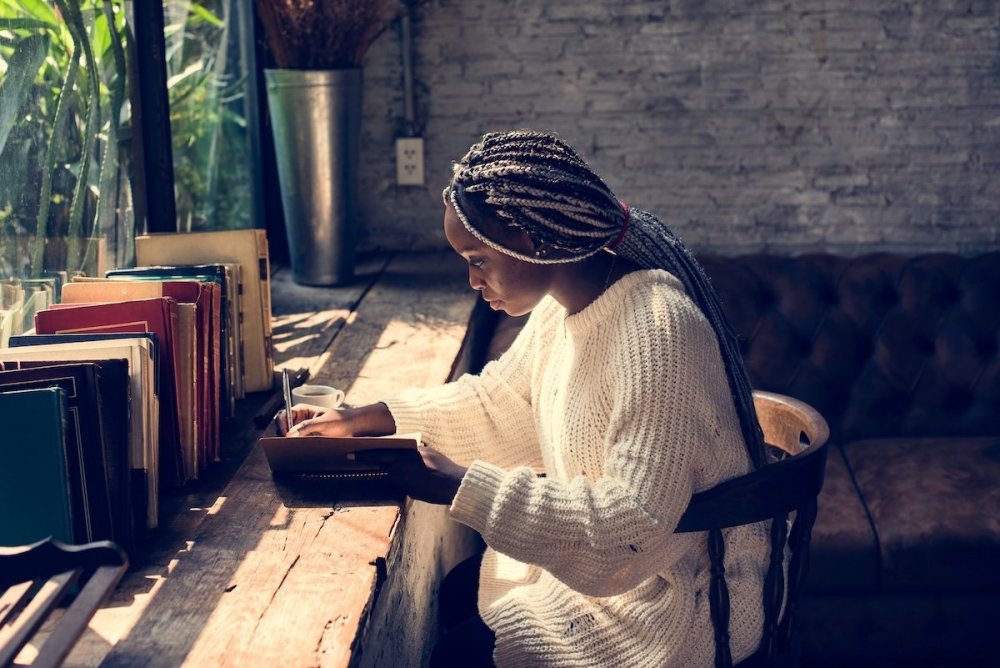Journaling isn’t just for teenagers. As Arlo Laibowitz explains, jotting down your thoughts, plans and reflections helps with self-development and is scientifically-proven to prevent depression. Try these seven creative journaling ideas and discover the multiple benefits these techniques will bring to your life.
Many of us have started writing a diary or journal at some points in our lives. And many of us have also stopped writing in them not that much later! Indeed, many famous artists, writers, entrepreneurs, inventors, and thinkers keep – or have kept – journals, and there are many different journaling techniques and ideas you can try. For many, it's a creative necessity and outlet. For some, it's a place for exploration, and yet for others, journaling is an art form in itself.
In fact, journaling can be enriching and fulfilling on many levels. It can lead to insights, personal growth, and setting and achieving goals. Journals record our ideas, thoughts, feelings and reflections. In doing so, they create a through-line in our life; a place of refuge and reflection, that we can visit and revisit.

Keeping a journal is a proven technique to develop personal growth
Personally, I started journaling years ago, as part of the Morning Papers practice of The Artist’s Way. I've written notebooks full of journal entries related to personal growth, gratitude, creative development, project ideas, personal insecurities, blocked traumas, to-do-lists, goals, dreams and much more.
Indeed, I've tried types of journaling for weeks or months at a time – and have also not journaled for weeks in between entries. Every time I come back to the practice and sustain it on a regular basis, I feel I can go deeper; explore things more explicitly, and in the process, experience a wonderful journey to my interior.
“There are many journaling techniques and ideas you can try. For many, it's a creative necessity and outlet. For others, it's an art form in itself.”
So, what are the benefits of journaling? What different journaling ideas and techniques can we employ? And how do we go about starting and – more importantly – sustaining a daily journaling habit?
What are the benefits of journaling?
Furthermore, the benefits of journaling are emotional, cognitive, creative, and possibly even spiritual. Using creative journaling techniques helps us to:
- Clarify our thoughts and feelings, reducing internal conflict
- Release thoughts and emotions, by recognizing and tracking them
- Increase focus while deepening our learning and problem solving
- Boost stability and help us let go of the past.
- Resolve disagreements with others, by detaching ourselves from the conflict and reflecting on it
Furthermore, studies show that specifically keeping a gratitude journal offers some added benefits. In fact, people that keep a gratitude journal have been shown to be happier, healthier, more balanced, and generally more optimistic. Furthermore, they are less self-centered, less susceptible to feelings of envy, more relaxed, and better in decision-making.
Journaling Techniques: 6 Ideas to Try
There are many different methods of journaling you can benefit from. Here are six creative journaling ideas to get you started. You can always try more than one technique at a time and discover what suits you best.
1. Ten Minute Routine
An easy creative journaling technique to begin with is practising the Ten Minute routine. Before going to bed, ask yourself so-called “requests” – the things that you're trying to accomplish currently in life – and write them down. Then, in the morning, write down your answers and thoughts on these questions. This way of journaling is especially efficient to review and sharpen your to-do-list and life vision, as they become forged in your subconscious mind.
2. Stream of Consciousness
Another tried and tested creative journaling idea is writing daily in a stream of consciousness. Note down any thought, memory, to-do-list, feeling, drawing, or whatever else pops up. Just let it flow as you write, without trying to censor or edit yourself. Keep going until everything in your 'stream of consciousness' is on the page.

Start your day with journaling and a clearer mind
3. Morning Memories
Another different journaling technique is writing 'morning memories daily'. Schedule your journaling session each morning, before you start your day. Use the same journal every day, sit in the same spot, and when you’re done writing, take time to reflect on what you've written and accomplished in that session.
RELATED:
4. Gratitude Journaling
Probably the most researched journaling technique is the gratitude journal, as mentioned earlier. For maximum benefit, take 15 minutes per day, three to four times a week, to journal about what you're grateful for on that day. Be specific, choose depth of gratitude over breadth, and try to get personal (being thankful to people is more efficient than to things). Make a note of seeing good things as a gift, as well as savouring surprises and unexpected events.
5. Intensive journal
A comprehensive method of journaling is using the intensive journal process. This copyrighted process, which can be learned in specialised workshops, enables the person journaling to get to know themselves on profound levels.
The Intensive Journal Workbook is a large notebook filled with paper and divided into four dimensions of human experience: Life/Time, Dialogue, Depth and Meaning. Each of these aspects is divided into several subsections to work through in the path that the method prescribes. Some of these paragraphs are used to write about our memory of the events of our lives as well as dreams and images. Others are more geared towards stimulating insights and creative activity.
6. Ensō drawing
There are various techniwues of journaling. We can choose a traditional way, with pen and paper, or write in an electronic journal, or even add art practices to our journaling, such as drawings or collages, or even specialised forms like ensō drawing.
“People that keep a gratitude journal are happier, healthier, more balanced, and generally more optimistic.”
Ensō originated in the Japanese Zen Buddhist tradition and these circles are considered sacred symbols that represent infinity and enlightenment, emptiness, balance and harmony. Made with one breath and one continuous movement of a brush or pen, the ensō represents the oneness of life and impermanence of the moment. Our vulnerabilities and strengths are all wrapped up in that circle.
As drawing an ensō only takes a moment, you could incorporate this practice alongside one of the other journaling techniques listed.
7. Future Self Journaling
Future self journaling is one of the newest journal techniques to gain attention. The practice essentially entails getting in touch with your inner self and manifesting the future you want. It works with employing a positive outlook, which helps you overcome creative blocks and navigate life in a more focused way.
MORE LIKE THIS:
- How to Let Go of the Past: 9 Techniques to Try
- 7 Ways to Tap Into Your Intuition
- 31 Shadow Work Prompts For Your Psychological Journey
Future self journaling involves focusing on your behavior and creating affirmations and strategies to make real changes to them to propel you to a better place.
How to Journal Daily
- A simple way to start journaling is by starting every day with writing down tasks and goals that you have for that day.
- Only write a few items, to make it easy to start and make progress.
- It's useful to mix personal and professional things.
- By keeping each journal entry short in the beginning, it's easy to do.
- At the end of each day, look back at what you've accomplished, what you've learned, what you want to explore further, and what you want to pursue the next day.
 Journaling techniques: start putting pen to paper
Journaling techniques: start putting pen to paper
Once you've developed a basic journaling practice, you can dig deeper and expand on it. Some commonly held beliefs and ‘best practices’ include:
- Writing about where you are in your life at this moment, and building on that in subsequent journal entries.
- Starting a dialogue with your inner child by writing in your non-dominant hand, and switching back to your dominant hand.
- For sustaining your gratitude practice, maintaining a daily list of things you appreciate.
- Starting a journal of self-portraits; draw, write, or collage who you are today, and learn to appreciate and develop yourself.
- Keeping a nature diary to connect with the natural world: record what you experience in looking at the sky, experiences and how you feel in different weather, or walks in nature.
- Maintaining a log of successes, starting with big ones that you remember, and then add them as they occur. This can be strengthening to go back to when you are feeling low.
- Keeping a playlist of your favourite songs. Write about the moods and memories they trigger.
- If there’s something you're struggling with or an event that’s disturbing you, write about it in the third person to create distance and perspective.
Journal Techniques: Travels to Our Interior
Journaling is a powerful habit that enables us to get a more in-depth and clearer understanding of the thoughts, feelings and issues we're working through. Whether we use journaling to accompany our meditation, forgiveness, or gratitude practices, or to work through emotional trauma or creative stumble blocks, a daily practice enables us to focus and develop further.
Trying different creative journaling techniques and ideas has given me many benefits in life. I wish you the same journey as you explore your journaling practice. ●
Images: Rawpixel.com, dekazigzag, Vergani Fotografia
happiness.com | The fine art of being: learn, practise, share
Are you a happiness.com member yet? Sign up for free now to enjoy:
■ our happiness magazine with practical life tips
■ share and support in our happiness forum
Written by Arlo Laibowitz
 Arlo is a filmmaker, artist, lecturer, and intermittent practitioner of metta meditation and morning yoga. When not dreaming about impossible projects and making them happen in the most impractical ways possible, he journals, listens to jazz, or cuddles with his better half.
Arlo is a filmmaker, artist, lecturer, and intermittent practitioner of metta meditation and morning yoga. When not dreaming about impossible projects and making them happen in the most impractical ways possible, he journals, listens to jazz, or cuddles with his better half.





Join the conversation
You are posting as a guest. If you have an account, sign in now to post with your account.